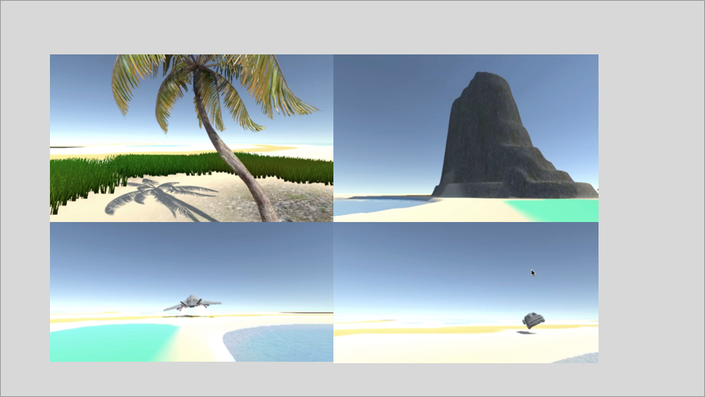
Unity From Zero to Proficiency - Foundations - (Video Course)
A Step-by-step course to creating your first 3D game (with no coding).
Get started with Unity and game programming fast without the headaches
Unity is a great software to create video games; however, it includes so many options and features that getting started can feel overwhelming.Without this course, most people spend too long trying to learn how to use Unity the hard way. This course is the only one that will get you to learn Unity fast without wasting so much time. This course is the first course in the series "Unity from Zero to Proficiency" where you will learn to code fast and be able to create your own video games with Unity in no time.
What you will learn
After completing this course, you will be able to:
- Know and master the features that you need to create 3D environments for your games.
- Quickly create (and navigate through) realistic 3D indoors and outdoors environments.
- Create a 3D Maze with lights, walls, and textures.
- Create an island with trees, sandy beaches, mountains, and water.
- Include and control a car and a plane.
This book is for:
- Hobbyists who need a book that gets them started with Unity and game development easily.
- Parents looking for a book that introduces their children to game programming painlessly.
- Teachers looking for a complete and clear resource on programming through the creation of games.
- Aspiring indie game developers.
How this course is different
This is the only book that you need to get started with Unity fast and to enjoy the journey without frustration. This book includes six modules that painlessly guide you through the necessary skills to master Unity's interface, use its core features, and create and navigate through realistic 2D and 3D environments. It assumes no prior knowledge on your part and ensures that you have all the information and explanations that you need every step of the way.
What this course offers
This book includes all the features that you need to get started with Unity and game development:
- Learn without the headaches: This course assumes that you can't be expected to learn everything at once; this is why you will build all your skills incrementally.
- Make your dream of creating your own games come true: This course ensures that you stay motivated by giving you the right amount of information and challenge in each chapter; we all know that it's hard to keep motivated when learning a new skill, so this course always contextualizes the knowledge with an example (so that you feel it's relevant), and also makes sure that you get to challenge yourself, if you need to, with optional challenges present at the end of each chapter.
- Progress and feel confident in your skills: You will have the opportunity to learn and to use Unity at your own pace and to become comfortable with its interface. This is because every single new concept introduced will be explained in great detail so that you never feel lost. All the concepts are introduced progressively so that you don't feel overwhelmed.
- Create your own games and feel awesome: With this course, you will build your own 2D and 3D environments and you will spend more time creating than reading, to ensure that you can apply the concepts covered in each module. All chapters include step-by-step instructions with examples that you can use straight-away.

"Being a programmer for the last 25 years of back-end communications and data services, this was a great way to start to get my feet wet in the gaming side of the world"
- Scott

"I have been doing web development for many years using c# and have always wanted to get into video games... Turns out it was a great buy"
- Ryan
Your Instructor

Patrick Felicia is a lecturer and researcher at Waterford Institute of Technology, where he teaches and supervise undergraduate and postgraduate students. He obtained his MSc in Multimedia Technology in 2003 and PhD in Computer Science in 2009 from University College Cork, Ireland. He has published several books and articles on the use of video games for educational purposes, including the Handbook of Research on Improving Learning and Motivation through Educational Games: Multidisciplinary Approaches (published by IGI), and Digital Games in Schools: a Handbook for Teachers, published by European Schoolnet. Patrick is also the Editor-in-chief of the International Journal of Game-Based Learning (IJGBL), and the Conference Director of the Irish Symposium on Game-Based Learning, a popular conference on games and learning organized throughout Ireland.